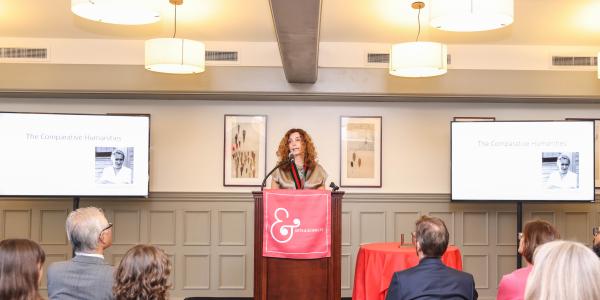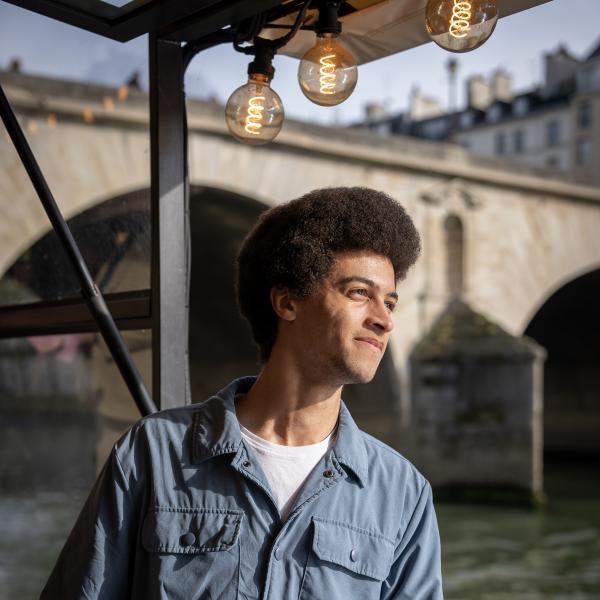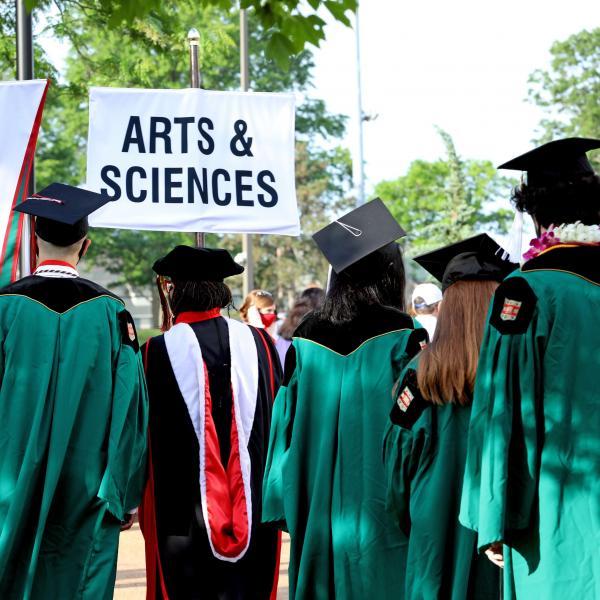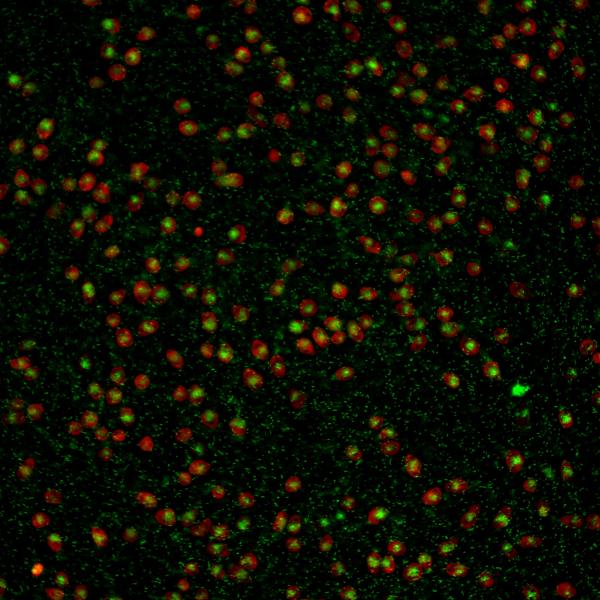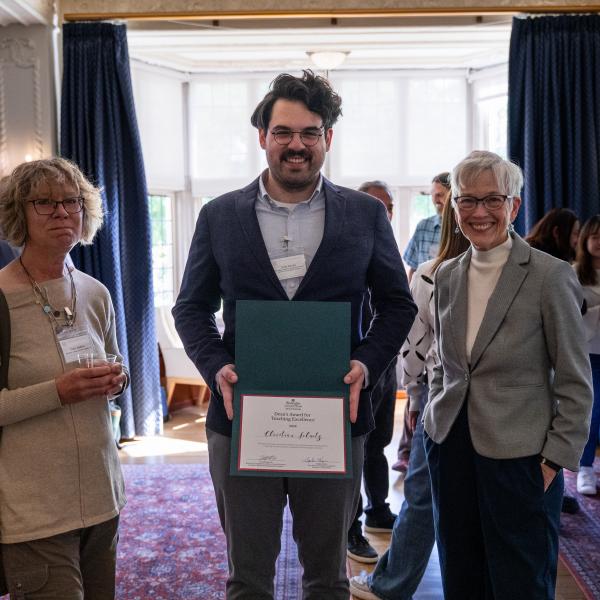During her installation address, Anca Parvulescu, the Liselotte Dieckmann Professor in Comparative Literature, discussed the history of comparative literature and its relevance today.
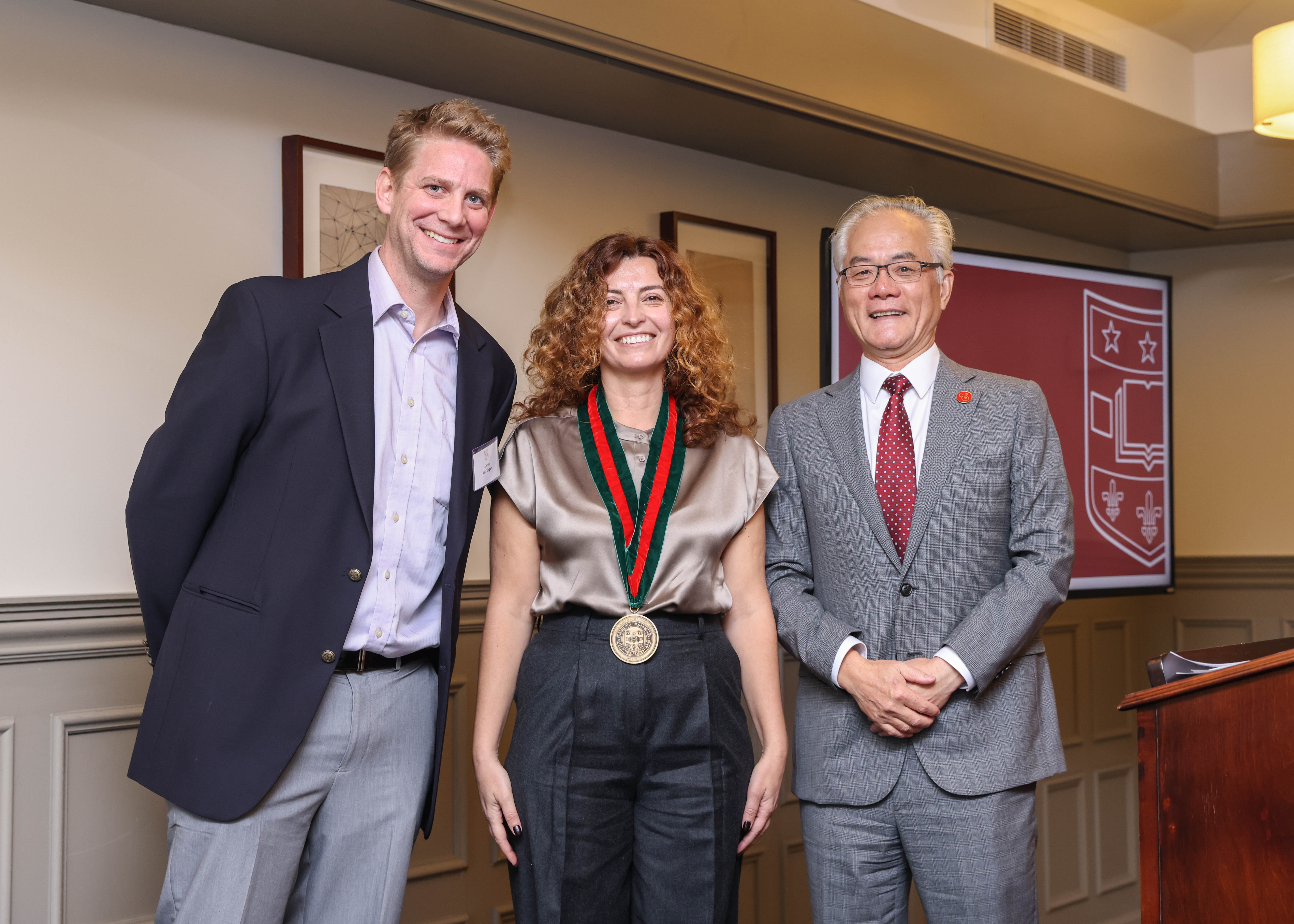
On Nov. 2, Anca Parvulescu was installed as the Liselotte Dieckmann Professor in Comparative Literature. The program included a welcome from Feng Sheng Hu, the Richard G. Engelsmann Dean of Arts & Sciences and Lucille P. Markey Distinguished Professor; an introduction by Abram Van Engen, chair of English and the Stanley Elkin Professor in the Humanities; and the installation and medallion presentation by Dean Hu.
In her installation address, Parvulescu discussed the history of comparative literature and its relevance today. “The history of comparative literature can hopefully help us counter the resurgence of nationalism with a certain kind of humanism — a humanism without a universalized human — that can perhaps still speak to our shared fate,” she said.
Parvulescu also noted the importance of instructing future generations of scholars in the comparative humanities. “Will Matheson endowed this professorship in honor of Liselotte Dieckmann, whose scholarship and leadership he admired,” she said. “But Matheson also remembered Dieckmann as a most dedicated instructor. I am particularly honored to be tied to this aspect of her legacy.”
About Anca Parvulescu
Anca E. Parvulescu grew up in Arad, Romania. She attended the University of Timișoara, where she received her BA in English Literature. In 2000, she moved to the United States to pursue a PhD in English and Comparative Literature at the University of Minnesota. She joined the faculty at Washington University in St. Louis in 2006.
Her research fields include international modernism, affect theory, Eastern Europe, and the history of comparatism. Parvulescu is the author of four books and 30 articles. Her first book, "Laughter: Notes on a Passion" (MIT Press, 2010), written with the support of a postdoctoral fellowship at the Huntington Library, is a study of literary and philosophical laughter across the 20th century. "The Traffic in Women’s Work: East European Migration and the Making of Europe" (University of Chicago Press, 2014), written with the help of a faculty fellowship from the Center for the Humanities at Washington University, brings a focus on East European women’s migration to the intense debate on Europeanization following the end of the Cold War.
Parvulescu collaborated with Manuela Boatcă, a sociologist of world-systems analysis, to write "Creolizing the Modern: Transylvania across Empires" (Cornell UP, 2022). The book places Transylvania, a small region in Central East Europe, within a network of global relations to reveal its entanglements in world history and world literature. The two authors’ work on "Creolizing the Modern" benefited from a Collaborative Research Fellowship from the American Council for Learned Societies. Creolizing the Modern received the 2023 René Wellek Prize for Best Book in Comparative Literature offered by the American Comparative Literature Association; the 2023 Barrington Moore Award for Best Book in Comparative and Historical Sociology offered by the American Sociological Association; and an Honorable Mention from the Political Economy of the World System Section of the American Sociological Association.
Parvulescu’s articles have been published in PMLA, New Literary History, Critical Inquiry, Literature Compass, Interventions, and Camera Obscura. Parvulescu is currently at work on two books. "Modernist Faces: Physiognomy and Facial Form" traces a cultural history of the face, positing an arc of relation between the history of facial reading, especially in modernist physiognomy, and facial recognition technologies. "The Need to Compare: Birth of a Discipline" tells the story of the invention of literary comparatism.
About Liselotte Dieckmann and William Howard Matheson
William Howard Matheson established the Liselotte Dieckmann Professorship in Comparative Literature through a bequest in 1998. Matheson was a professor of comparative literature at Washington University in St. Louis for 25 years, until his retirement in 1996. The gift honors Liselotte “Lilo” Dieckmann, a colleague in comparative literature described as “an outstanding teacher, an inspired mentor, and [the person] responsible for bringing [Professor Matheson] onto the faculty.”
Professor Dieckmann, a native of Frankfurt, Germany, grew up learning Greek, Latin, and other languages and literatures, and her education included broad exposure to museums, concerts, opera, and theater. She studied languages and literatures at German universities, receiving her doctoral degree from the University of Heidelberg in 1927.
She began her teaching career at the University of Istanbul in Turkey. In 1938 she moved with her family to St. Louis, first teaching at John Burroughs High School. In 1945 she joined the faculty of the university’s French department and, in 1947, the German department. She became a full professor in 1959, chaired the German department from 1963 to 1967, and served as acting chair in 1970 and 1971.
Although Professor Dieckmann retired from the university in 1971, she remained active as professor emerita in comparative literature until 1979. She also continued her work as an active scholar, translating books, delivering guest lectures, and championing greater emphasis on the humanities in American universities—especially at Washington University.
Her career as a distinguished scholar of German and French literature was enhanced by her pioneering role as one of the first women to achieve the rank of full professor and one of the first female department chairs at Washington University. Professor Dieckmann’s energy, creativity, and intellectual curiosity remain exemplary in the academy. The Department of Germanic Languages and Literatures owes much to her administrative and intellectual leadership. Professor Dieckmann died in 1994.
